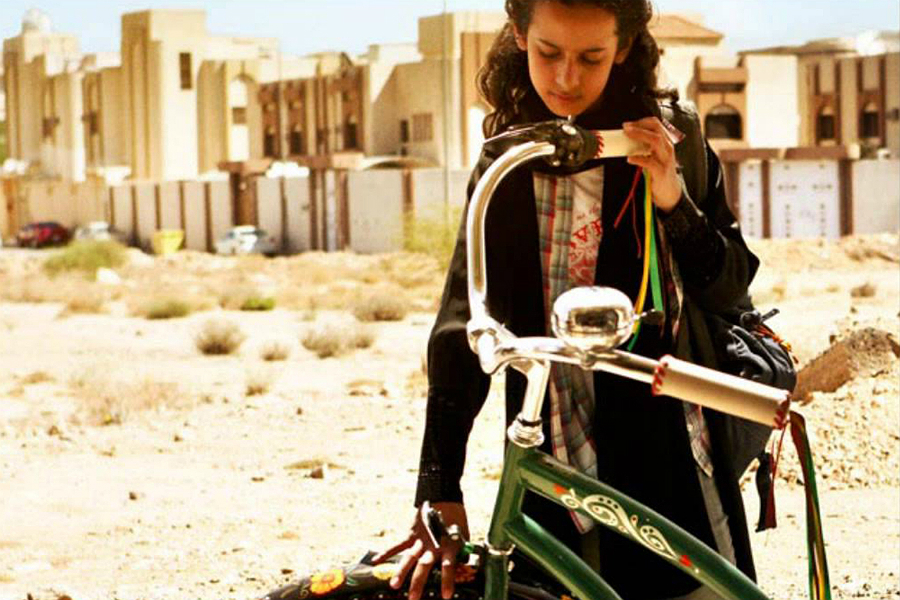Wadjda – Reviewed

The first full length feature produced in Saudi Arabia, James Hampson considers Wadjda, a film about a girl and her bike, and so much more…
Wadjda is a film of firsts: it is the first film ever shot entirely in Saudi Arabia; it is written and directed by the kingdom’s first female director, Haifaa al-Mansour, and it is about the titular character looking for a first of her own – her first bike.
This standard rite of passage for children of any gender and class in the west is no easy feat in Saudi Arabia, though. It is unprecedented for a girl to ride a bike, for example, whilst Wadjda’s male contemporaries ride off into the sun, jeering at her.
The character is a free and entrepreneurial spirit; she wastes no time in getting down to business. She makes and sells bracelets and mix-tapes, strong-arms a shop owner into holding a bike for her, and sells the contact details of a classmate to a romantic suitor.
When money trickles in at a glacially slow pace, she enters that classic trope of aspirational teenage films: the school talent show. Labouring under the menacing gaze of her sneering headmaster, she must learn and recite five surahs of the Quran, a seemingly impossible task to start off with – as talent show assignments often are.
Here, the bike is a symbol of freedom in every sense: freedom to race against the boys; freedom to whizz past the builders who shoot leery sexual remarks at her; freedom of movement in a world governed by the whims of male drivers who must shuttle women like Wadjda’s mother, played with a doomed grace by Reem Abdullah, back and forth across Riyadh.
In April of this year, the Saudi government passed a law allowing women to ride bikes – but only in circles in the park, and accompanied by men. Wadjda doesn’t want to ride in circles. She has a destination in mind.
The atmosphere of the Arab world is vividly captured as Wadjda wanders across town through endless construction sites, some of which are literally inescapable; when some builders working up scaffolding can see her and her classmates in their enclosed schoolyard, they flee inside.
The script is tight and minimal, reflecting the world of enforced simplicity and banality in which the women are forced to live. The world of men meanwhile is glimpsed only briefly, through cracks in doors left ajar, and from streets away as they gregariously celebrate an engagement.
In the west, we are exposed to statistics and abstract arguments about the lot of women in the Arabic world, but with this film – subjective as it may be –we are presented with something that expresses the human experience of it, and its essential mundanity: gossiping about nothing on the phone, lazily drifting around shopping centres, watching daytime television.
It’s worth noting that the film received funding from Rotana, a company run by a member of the royal family, and it’s remarkable that this is the first feature film to come from Saudi Arabia, so (constructively) critical of the foundations of Saudi society as it is, yet still having an implicit endorsement from the ruling elite.
They have, of course, made the right move. This film is a sparkling debut from the Saudi film industry, with al-Mansour expressing a view of her country which is eye-catching and complex, has people talking and, more importantly, listening. We will be waiting and watching to see what comes next.
James Hampson





